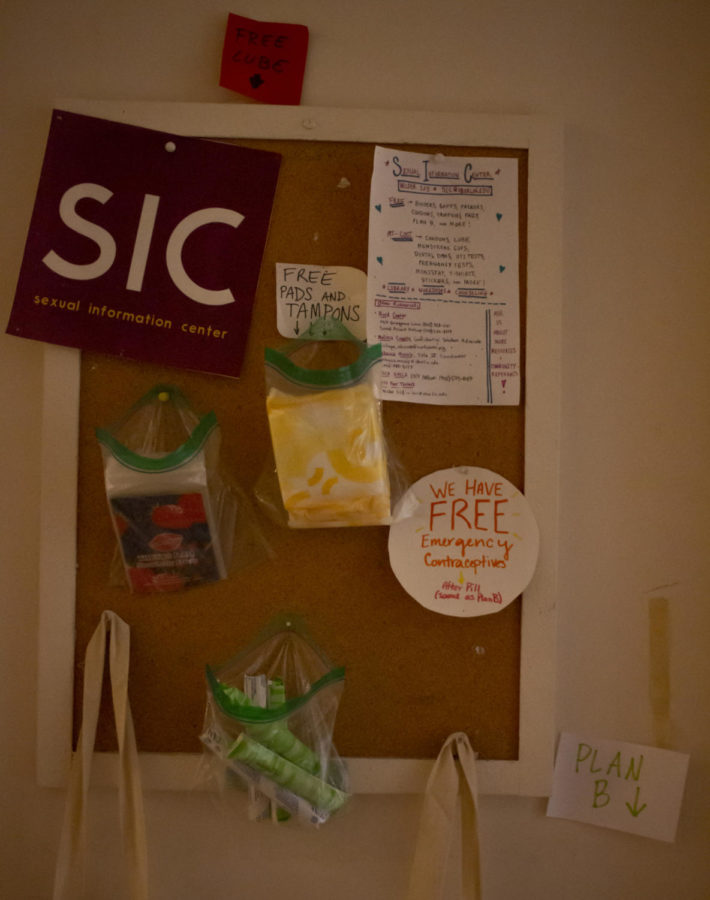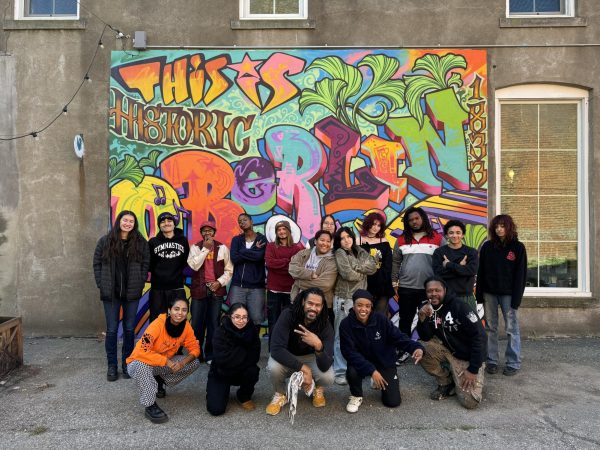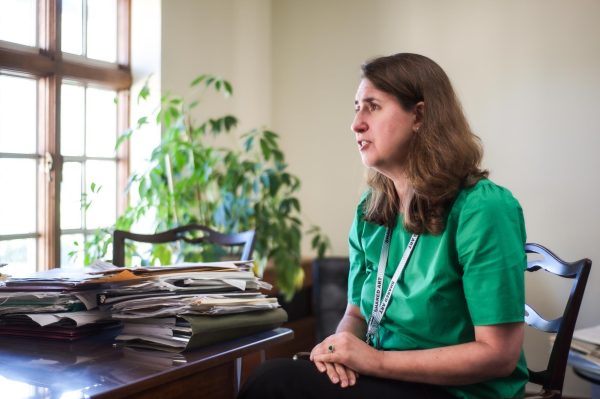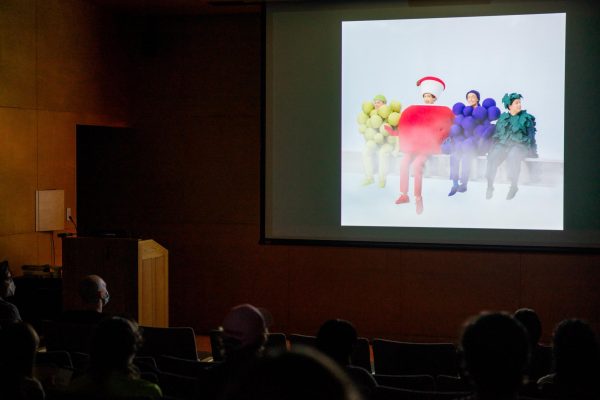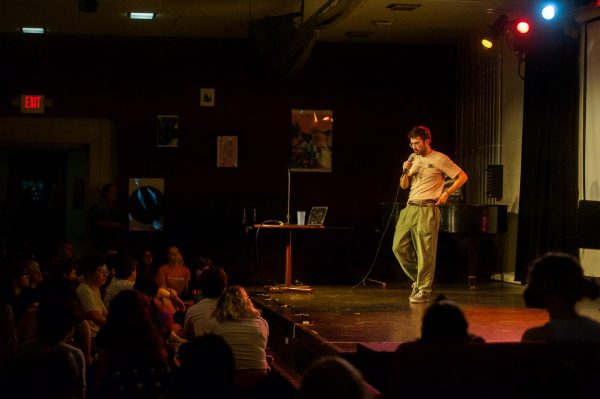Masks Off and Condoms On: A Look at Post-Pandemic SIC
COVID-19 may have discouraged campus hookup culture, but with approximately 81 percent of the student body vaccinated, and ObieSafe guidelines becoming less restrictive, the campus is loosening up. Throughout the entire pandemic, Oberlin’s Sexual Information Center staffers have worked diligently to sustain sexual health on campus.
With COVID-19 gradually receding from the college experience at Oberlin, the SIC is at the precipice of a particularly exciting semester. Though this excitement is born partially from our return to normalcy, it’s also related to an organizational shift aimed at creating a safer space for students of color. Every student who works for the SIC goes through a rigorous application process. Students interested in participating must enroll in an entire semester of SexCo and additional training before they can even begin the application process: this ensures every individual staffer is uniquely equipped to facilitate the safety crucial to the SIC. This summer, for the first time in recent memory, the staff is made up entirely of people of color.
Since its founding in 1979, the SIC has committed itself to providing holistic sexual education. This year, there is a renewed focus in the organization on ensuring that students of color feel safe and included in conversations surrounding sexual health. The SIC has worked with Obies for 42 years, spanning the HIV/AIDS crisis, ever-changing abortion laws, and the fight for LGBTQ+ rights. So, when a pandemic seized our reality and flipped it like a throw-away flapjack, the SIC rolled with it.
Still, the SIC had to overcome a variety of COVID-related obstacles. Many of the SIC’s resources have always relied on in-person contact. Whether you’re dropping into the office to grab a product from their immense repertoire of free resources — including gender-affirming products, contraceptives, plan B, etc. — or receive peer-to-peer counseling during office hours, it’s likely you’re hoping for a feeling of closeness and safety, something that is much harder to cultivate in a socially-distanced way.
In the age of COVID-19, staffers met socially-distanced limitations innovatively, opting to distribute their resources by mail via product delivery form. They continued to hold office hours via Zoom, offering trauma-informed care for students seeking peer support.
College third-year Imani Badillo first took SexCo, a student-taught elective course encompassing all aspects of sexual safety, and a requisite for all SIC staff applicants, in the first semester of their second-year. Badillo enrolled in the section of SexCo that is specifically designed for students of color. They quickly discovered a deep passion and aptitude for sexual health facilitation and are now a pivotal member of the SIC staff. Badillo’s time working within the office’s physical space has been framed by COVID-19’s inherent lack of normalcy. During this time SIC has focussed its work toward promoting accessibility — as well as looking forward to a post-COVID-19 reality.
“These past few semesters we were doing office hours on Zoom, and I feel like it wasn’t necessarily a huge barrier, but I think it was not the same experience,” Badillo commented. “In my experience conducting office hours, attendance went way down, and I was really wishing that people were just able to even walk by the door and get products. I was just wishing that people could have a bit of the SIC as it usually runs, so I’m excited that we will be able to do office hours in person again. I think we’re going to have the whole store open so people will be able to come in again and take whatever they need.”
College second-year Remy Welsh began her commitment to sexual health in high school as a peer educator for Planned Parenthood, and has been working at the SIC since spring of her first year. She was highly involved in this semester’s application process and is jubilant to see this semester’s staff reflect her efforts to create a safer space for students of color to access sexual health resources on campus.
“Especially with work like the SIC is doing, I think it’s crucial to center Black people — POC — so to have that staff at the forefront I think is a really important thing,” Welsh reflects. “I wanted to be really conscious, especially when we were going through the hiring process, one of the things that I voiced was: ‘I would like for the SIC to kind of evolve into a space that is a lot more people of color and Black people.’ That’s something that, since my freshman year, I was like, I hope that eventually that is something that could happen, so … it’s really special.”
College second-year Tiffany Yuen began her involvement with the SIC in the spring of her second-year when she simultaneously trained to become an abortion doula with the Oberlin Doula Collective. Like Badillo and Welsh, Yuen watched the interview process unfold and expressed a sense of solidarity between her co-staffers in envisioning a space that would optimize comfort in the SIC’s return to its regular, pre-pandemic functions.
“I think it’s super important that the staff is all POC because I think that it offers more holistic support,” Yuen said. “We, the staffers, are all very different and I think that we each bring such unique and colorful experiences and we’re able to offer, this semester especially, support for people of color who might not feel comfortable coming to office hours and I think that having the staff be all POC makes the space more accessible.”
The SIC is located in room 203 on the second floor of Wilder Hall and plans on reopening in-person office hours in the coming weeks. If you’re looking for binders, glow-in-the-dark condoms, or an empathetic ear, the SIC has got you covered. The team understands that sexual health is a crucial piece of general well-being, and Oberlin is very lucky to have a resource as uniquely qualified as the SIC.


